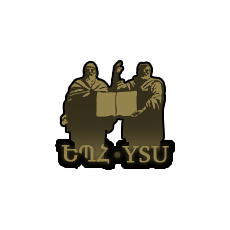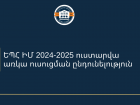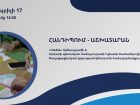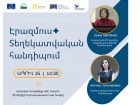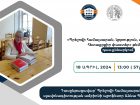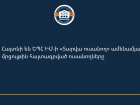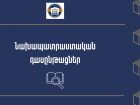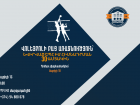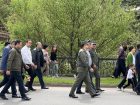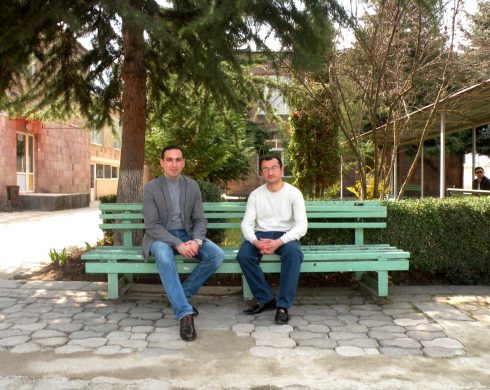 On April 4th, 2019, we had an interview with the participants of April Four-Day War Vladimir Poghosyan, Head of YSUIB Library, lecturer of Armenian History and Social Sciences Department and Slavik Alaverdyan, Inspector of the Department of Professional Orientation and Practice, lecturer of the Department of General Mathematics and Natural Sciences.
On April 4th, 2019, we had an interview with the participants of April Four-Day War Vladimir Poghosyan, Head of YSUIB Library, lecturer of Armenian History and Social Sciences Department and Slavik Alaverdyan, Inspector of the Department of Professional Orientation and Practice, lecturer of the Department of General Mathematics and Natural Sciences.
– Dear Vladimir and Slavik, where were you performing your military service when the April Four-Day war started?
V.P. – I have performed my military service in the 4th defense region of Artsakh Republic Defense Army, in Askeran military unit. On April 2, 2016 at 3 a.m. the April war, a new phase in the Armenian-Azerbaijani conflict, started. The defenders of our motherland withstood the armed enemy. Along with skillful officers the conscripts fought bravely as heroes. The heavy combats took place in southeastern and northeastern parts of the frontline. It is possible that the enemy was planning to divert Armenian forces to active military operations to those directions in order to weaken the central part of the frontline, but the idea eventually failed.
S.A. – I have performed my military service in the northeastern part of Artsakh, in Martakert. On the night of 2 April, I was in a military unit. At 3:00 am, I was awake. I started listening to the bomber blast. First, I thought it was a regularshooting, which had become more frequent in 2015. However, the votes were intensified, and it became clear that this was something else. We woke everyone up and prepared to join our friends for help. For some time, active artillery did not allow to do it, and only hours later we occupied our positions and fulfilled our combat mission.
By the way, the word “Four-day” is circulating on different platforms, but it is not appropriate, as the combat operations were resumed and the war lasted for more than 4 days.
– In your opinion, what were the causes of the April war, how long it lasted and how it happened?
V.P. – The bases of the April military operations are deeper than we imagine. Since 1994 ceasefire, developments in the legal-political context of the Artsakh issue did not create preconditions for settlement of the territorial issues through constructive negotiations and to resolve the issue on the basis of the principles of self-determination and territorial integrity within the framework of international law. It is noteworthy that Azerbaijani Armed Forces started new accumulations and regroupings beginning from April 2 and reportedly brought 3 artillery brigades and other artillery and general military staff forces to the frontline. As part of elaborated tactics, tank subdivisions were constantly moving, maneuvering and taking new shooting positions along the battle lines of the 4th Defense Region, trying to spread panic among Armenian border defense forces. Evidently, in the central part of the frontline accumulations reached their apogee on April 4. During this the enemy was constantly bringing new forces to the frontline.
On April 4 at 17:30 observers of the artillery subdivision of the 4th Defense Region detected motorcades and artillery batteries along the Akna frontline, near the Azerbaijani villages of Ballar, Sarijali, Chemenli and separated tank columns near the villages of Gharadaghli, Evoghlu and Afatlu as well as fire positions of artillery batteries in the outskirts of Afatlu, Evoghlu, Gharadaghli, Mahrizlu, Sarijali villages. At 18:00, the central artillery military unit and divisions of the 4th Defense Region of the NKR Defense Army opened salvo fire against those accumulations. Artillery subdivisions of the central defense region of the Defense Army played a key role here. The central artillery subdivisions managed to suppress the above mentioned brigades and destroy the command center of the brigade with a combined slavo fire.
S.A. – The main cause of the war, in my opinion, is the unscrupulous self-deception of the military-political leadership of Azerbaijan that they have the advantage over us, and the distortion of history, the misleading of their own people, and the unjustified ambitions.
The active actions lasted April 2-5, some places on April 6, and then on April 27-28, for the second time the Armenian artillery detachments engaged in artillery shootings and completely fulfilled the combat mission.. .The role of artillery is invaluable.
I will tell the deeds of my military unit staff. The largest group was focused on our direction, and in the first case, an unprecedented attack was expected in the case of successful adversaries. In the morning of April 2, the captain Armenak Urfanyan, junior sergeant Robert Abajyan, Qyaram Sloyan and Andranik Zohrabyan were killed in battle for the defense of one of our units. Under the order of the commander of the military unit, Colonel Samvel Grigoryan, three groups were rushed to the position. Lieutenant Colonel Aram Hayryan, Edik Maloyan and his subordinates, spies and tankers were distinguished by their actions. During the protection and resettlement of our positions, our servicemen have resisted the enemy more than 20 times.
– What did you feel during the war days and what changed in you after the war?
V.P. – Faith and trust, boundless faith in a friend and a commander. The war has changed every approach, breaking the stereotype of the commander, officer.
Forgetting every negative and bad phenomenon, our soldiers and officers were able to solve all of the problems. The combat operations not only consolidated, but also became the pledge of existence of a pan-national united army because every Armenian, regardless of his position, was doing his best to help the soldier standing in the trench.
S.A. – The feelings were different and mixed, from fear and confusion to bravery and pride. Many of us did not have hope that they would survive, but they were ready to defend their homeland at all costs. We spent about two months in very difficult conditions, adapting to various deprivations, for the sake of the homeland and the welfare of our families. We were very excited and surprised by some of the nation’s consolidation and their aid.
After the war, I have begun to look differently at the people around me, at simple and complex human relationships: you do not know who will be next to you at the most difficult moments.
– What teaches the April Four-Day War and what will you tell our young people (in particular our students)?
V.P. – “Be strong, stronger and always stronger, power is the right,” so we must use power to further strengthen our military capabilities. It is always necessary to be ready, because living in a region where the Muslim pursues the policy of “without Armenians in the region” is just a matter of daily replenishment and strengthening of our powers. I am convinced that a nation with such a generation is invincible. Let’s love our country, our home and all that is ours, love more and more…
S.A. – Always be ready for war. If we are strong and ready for war and rebuff, the enemy will not attack.
My message is the following: “You do not know when your life’s thread will be cut off: you must live a full life every day “.
– Thank you (particularly, all our heroes, brave sons of the nation), dear Vladimir and Slavik, for the homeland service and of course, for this impressive interview.
Interviewed by YSUIB Public Relations and Press Responsible
Hasmik Vanyan




